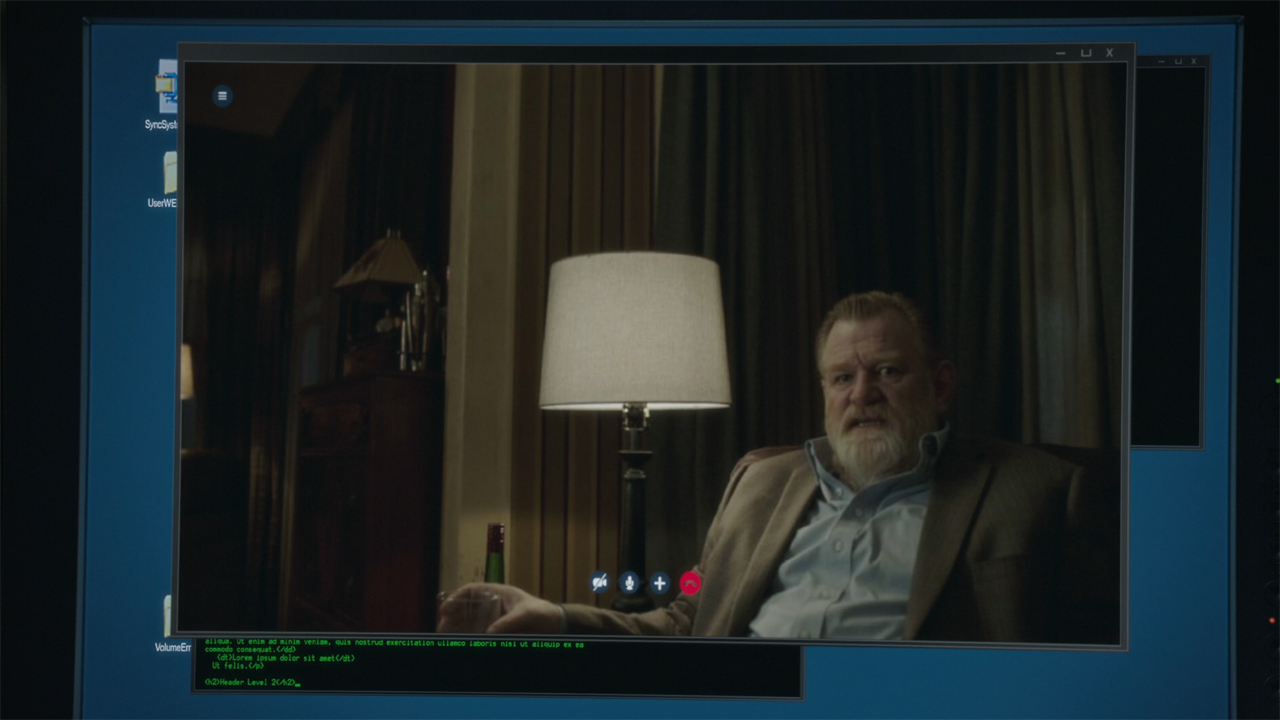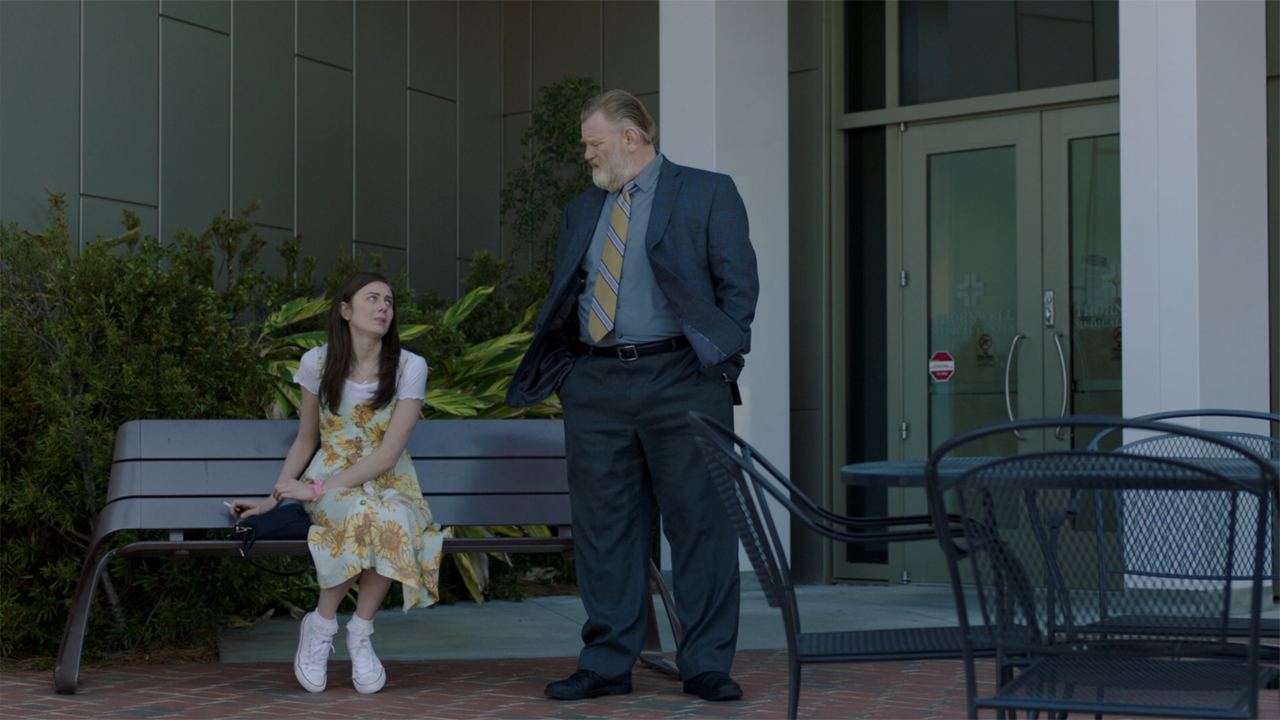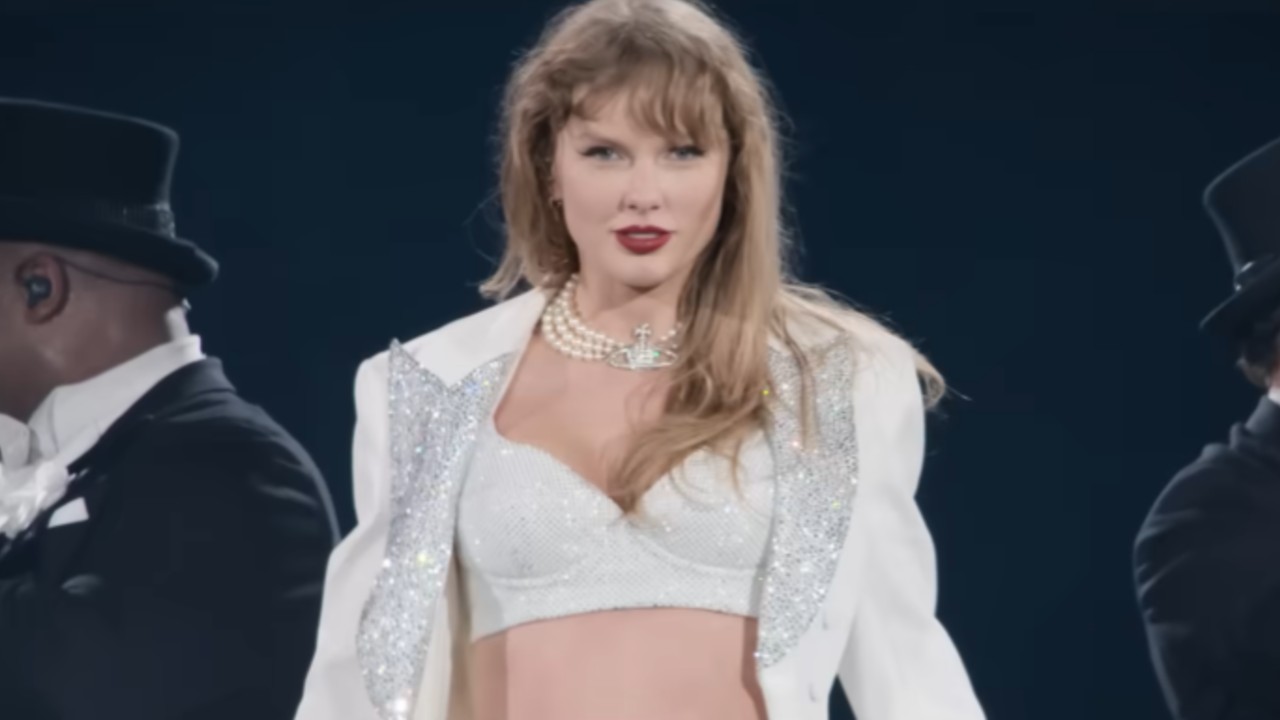Adapting Stephen King's Mr. Mercedes: Season 1 Of The Audience Mystery Series Is An Underseen Gem
Brendan Gleeson stars in a terrific Stephen King adaptation.

Your Daily Blend of Entertainment News
You are now subscribed
Your newsletter sign-up was successful
As I’ve chronicled in the writing of this weekly column, the choice of medium is key in adapting the works of Stephen King, and his novels in particular have vexed many filmmakers. The limited runtime of theatrical movies often forces massive cuts to compensate for the author’s verbose style, and TV shows like USA Network’s The Dead Zone, Syfy’s Haven, and CBS’s Under The Dome all had to dilute their source material in the name of generating multiple years’ worth of stories. There has been a lot of success with miniseries, but even those have had limitations – such as content censorship on network television and basic cable.
The work generally demands a certain amount of compromise and manipulation… but Mr. Mercedes is special compared to all that came before it. For the first time in the history of Stephen King adaptations, an on-going television series was developed with the plan to have a single season adapt a single novel – which was a plan that was executable because King had written a pair of sequels that could be adapted subsequently and keep the show going.
The sequels admittedly didn’t exist in publication when the Mr. Mercedes TV series was first announced in January 2015 with David E. Kelley and Jack Bender respectively attached to write and direct, but one did by the time Audience announced a 10-episode order, and both were out by the time principal photography commenced in early 2017. Access to the show wasn’t exactly broad, as the network on which it aired was only available to DirecTV and AT&T U-verse subscribers, but between the 10 hours of runtime real estate and zero limitations in regards to language, sexuality and violence, a perfect opportunity was available to create an ideal adaptation.
In the coming weeks I’ll be writing about both End Of Watch and Finders Keepers as source material for Mr. Mercedes Season 2 and Season 3, but this week’s Adapting Stephen King focuses solely on Season 1, which exists as one of the best all-around small screen King projects that have been produced to date.

What Mr. Mercedes Is About
Stephen King is certainly best known for his work in the horror genre, but only an ignorant individual would say that it is his exclusive realm. His body of work is a demonstration of remarkable range, as he has written sci-fi, fantasy, coming-of-age drama and more. And yet he had to deal with some doubts when he was considering trying to write a new kind of book in the early ‘00s: detective fiction.
In a 2017 interview with USA Today, King explained that he had a moment of getting real with himself and analyzing what it was that was stopping him from getting the work done. He determined that there was a degree of cowardice involved:
I had this discussion with myself: ‘Wait a minute, you’re in your 60s now. You’re doing OK financially — it isn’t like you need to write a certain kind of story in order to feed your family. Are you going to do this, or punk out and be gutless?’
Further encouraging him to pursue the story was a passion for the storytelling. In the same interview he explained how he has devoured mysteries since he was young, and with Mr. Mercedes he wanted to tackle material akin to the Master of Suspense himself, Alfred Hitchcock. Said King,
Your Daily Blend of Entertainment News
I’ve read detective novels my whole life and I say that without a shred of guilt, starting with Agatha Christie when I was 12 years old. The way I handled it was to go back to Hitchcock, where you really know everything and the characters don’t know anything. It’s not a whodunit, it’s this game of wits with life and death stakes we get to see from both sides.
As for the crime that would be at the center of his story, Stephen King took inspiration from real life and turned the dial up to 11 on the horribleness. According to Bev Vincent’s Stephen King: A Complete Exploration Of His Work, Life, And Influences, the author was traveling between Florida and Maine when he heard a news story about a woman who, during an “altercation” with another woman, ended up driving her car into a crowd of people.
After mulling over this story for about a year, King imagined the crime being far worse and pondered the idea of the driver getting away with it, his identity kept a secret. He then thought of this mass murderer turning the tables on the retired detective who failed to catch him and trying to goad the cop into committing suicide. The original intention for the idea was a short story, but it ended up becoming one of the two novels he had published in 2014 (the other being the phenomenal, nightmare-inducing Revival).
Mr. Mercedes begins with a tragedy that becomes known as the City Center Massacre. While people stand in line one morning to attend a job fair, an individual driving a stolen Mercedes-Benz sedan pulls up and purposefully plows into the crowd – killing eight people and crippling three others. Det. Bill Hodges dedicates himself to discovering the identity of the psychopath, but the investigation yields no arrests and he is eventually forced into retirement.
Lonely and listless, Bill wastes his days away as a retiree, but that changes when he receives a letter in the mail from an individual who claims to be The Mercedes Killer. Unbeknownst to the detective, this homicidal maniac is his neighborhood’s ice cream man, a psychotic 30-something named Brady Hartsfield, and while it’s Brady’s intention to get the retired investigator to eat his own gun, he instead manages to give Bill a fresh reason for living.

How Mr. Mercedes Season 1 Differs From Stephen King's Book
Serving as showrunner on Mr. Mercedes, David E. Kelley clearly recognized the special opportunity he was granted in bringing Stephen King’s work to television, and as such, I’d say about 90 percent of what is in King’s novel is adapted directly for the show. There are significant changes made to the ending, and smaller alterations made throughout, but all of the major plot points from the book are featured in the series’ first 10 episodes.
As far as the cast of characters is concerned, there are three characters that are invented or greatly expanded for the show. Ida, played by Holland Taylor, is introduced as a next door neighbor for Bill Hodges (Brendan Gleeson), and her kindly presence has a way of softening some of the protagonist’s sharper edges in the source material.
On the other side of the narrative, the world of Brady Hartsfield (Harry Treadaway) is expanded with the show spending a lot of time with him while he works as an employee in a small electronics store (Discount Electronics in the book, Supreme Electronix in the show). The standout impact of this is increased roles for his boss and coworker. Tones Frobisher in the novel becomes Anthony 'Robi' Frobisher (Robert Stanton), and Freddi Linklatter is changed to be Lou Linklatter (Breeda Wool).
Like the effect that Ida has on Bill, Robi and Lou end up making Brady Hartsfield a lighter character than his on page counterpart. Verbally abusive treatment from Robi adds to the perspective of the antagonist as a victim to go along with the regular sexual abuse he suffers at the hands of his mother (Kelly Lynch). Brady’s friendship with Lou, a proud lesbian, paints him as much less of a hateful bigot than what King originally wrote, and he even commits a Dexter-esque murder of a neo-Nazi customer who is hateful and rude toward her.
There are a few other invented episode-long arcs such as that one – like Brady’s mother taking a stab at sobriety after Brady’s rejects her advances – but they don’t steer the plot far away from what is in Stephen King’s book.
The most significant changes away from what’s in the source material come at the end of Mr. Mercedes Season 1, and it’s obvious that the reasoning behind them were more driven by logistics than creative choices. In the novel, Brady’s plan as the cops are circling in is to suicide bomb a boy band concert, but his plan is foiled when Holly Gibney bashes his skull in with Bill Hodges’ Happy Slapper (a sock full of steel ball bearings). It surely would have been very expensive for the show to depict a boy band concert, so the target of Brady’s crime instead becomes the opening of a new local arts center. The series also doesn’t feature the Happy Slapper, as Holly (Justine Lupe) instead inflicts damage to the killer’s brain by swinging a brass doorstop into it more than a couple times.
Mr. Mercedes also skips over the events of the final pages of the book – which has Brady Hartsfield waking up in the hospital and calling for his mother – but that’s a choice that was clearly made with the knowledge of what happens in End Of Watch (which I’ll get into in a few weeks with my column about Mr. Mercedes Season 2).

Is It Worthy Of The King?
Despite any and all genre trappings, Stephen King books live and die by the strength of their characters, and this maxim holds true for Mr. Mercedes primarily because of Bill Hodges and Holly Gibney: two of King’s greatest creations. They are individually textured and real personalities who ultimately undergo powerful and meaningful changes, and the special bond that is formed between them is beautiful. King’s personal love for them is clear, expressed in his prose and in the fact that they have been such a significant part of his modern work. (In addition to the Mr. Mercedes trilogy, Holly is also featured in 2018’s The Outsider and is the lead character in the novella “If It Bleeds.” She will be featured as the protagonist in King’s upcoming 2023 novel Holly).
Not only does the Mr. Mercedes TV series do justice to the characters through the adapted story, but the casting of Brendan Gleeson and Justine Lupe is perfection on the level of Kathy Bates in Misery and Morgan Freeman in The Shawshank Redemption. Bill isn’t Irish in the book, but that’s incidental in light of the passion and power that Gleeson provides the flawed and haunted detective. Opposite him, Holly has such obvious expressed fragility, and the audience is made to feel fervent about her protection at all costs, but underneath it is an awesome determination that Bill uniquely evokes, and Lupe’s performance is stunning.
Gleeson and Lupe are standouts, but the casting is tremendous all around – Harry Treadaway’s Brady Hartsfield also deserving special recognition along with Jharrel Jerome as Harvard-bound helper Jerome Robinson. With its engaging characters and tight mystery, the show is a remarkable example of the greatness that can happen when filmmakers trust and lean into the source material, and Mr. Mercedes Season 1 alone is one of the best Stephen King adaptations we’ve seen in the 21st century.

How To Watch Mr. Mercedes Season 1
Due to the network on which it aired, Mr. Mercedes wasn’t available to a lot of TV viewers when episodes were first premiering, but things changed in a big way back in March 2021 when the entire show became available to those with a Peacock subscription. You can also digitally rent and purchase episodes via Amazon, Vudu, Google Play, and Apple. If you’re a physical media collector and/or building the Ultimate Stephen King collection, the complete series is available on a region free Blu-ray, and there are DVD releases for each season.
Next week’s Adapting Stephen King will be a special one, as I’ll be taking an in-depth look at what currently exists as the biggest box office hit in the history of King adaptations: Andy Muschietti’s IT. Look for the column in the CinemaBlend Movies section next week, and click through the banners below to discover all of my previous features.







Eric Eisenberg is the Assistant Managing Editor at CinemaBlend. After graduating Boston University and earning a bachelor’s degree in journalism, he took a part-time job as a staff writer for CinemaBlend, and after six months was offered the opportunity to move to Los Angeles and take on a newly created West Coast Editor position. Over a decade later, he's continuing to advance his interests and expertise. In addition to conducting filmmaker interviews and contributing to the news and feature content of the site, Eric also oversees the Movie Reviews section, writes the the weekend box office report (published Sundays), and is the site's resident Stephen King expert. He has two King-related columns.
